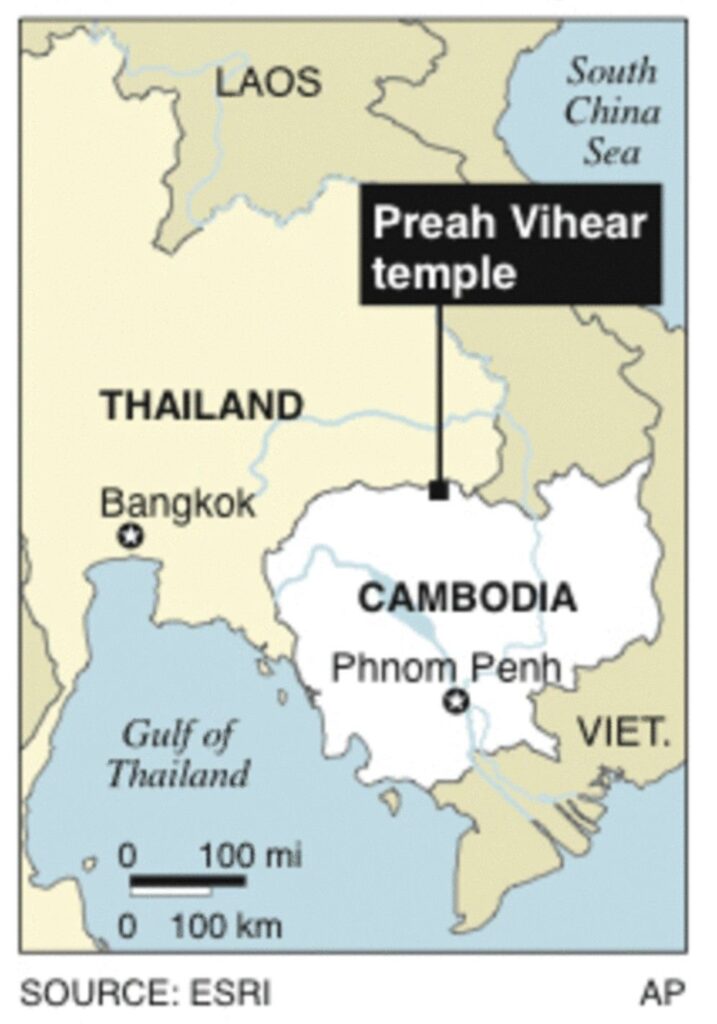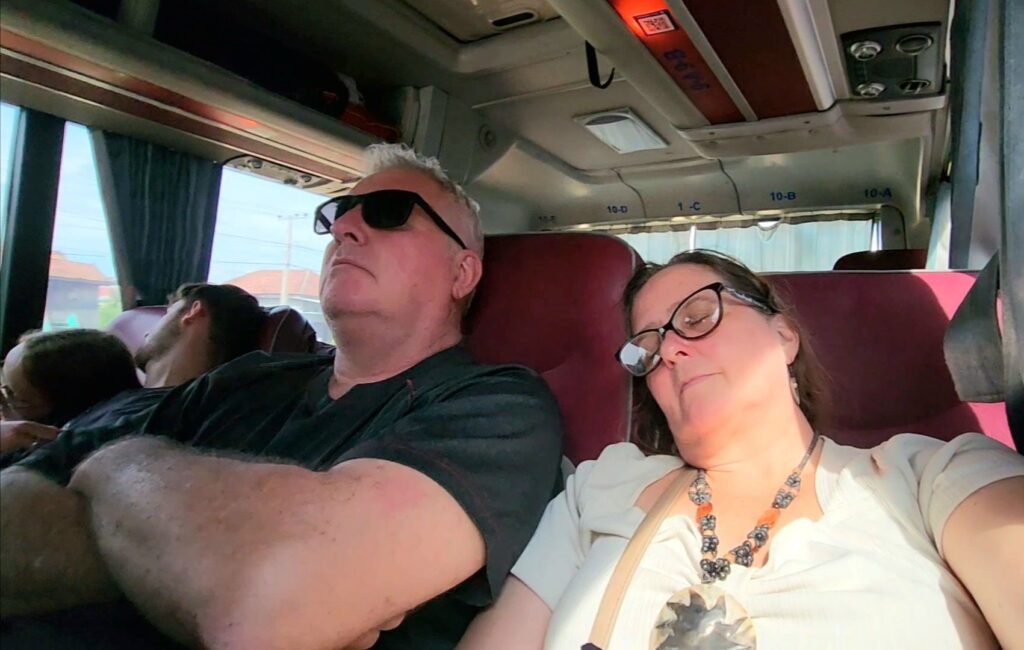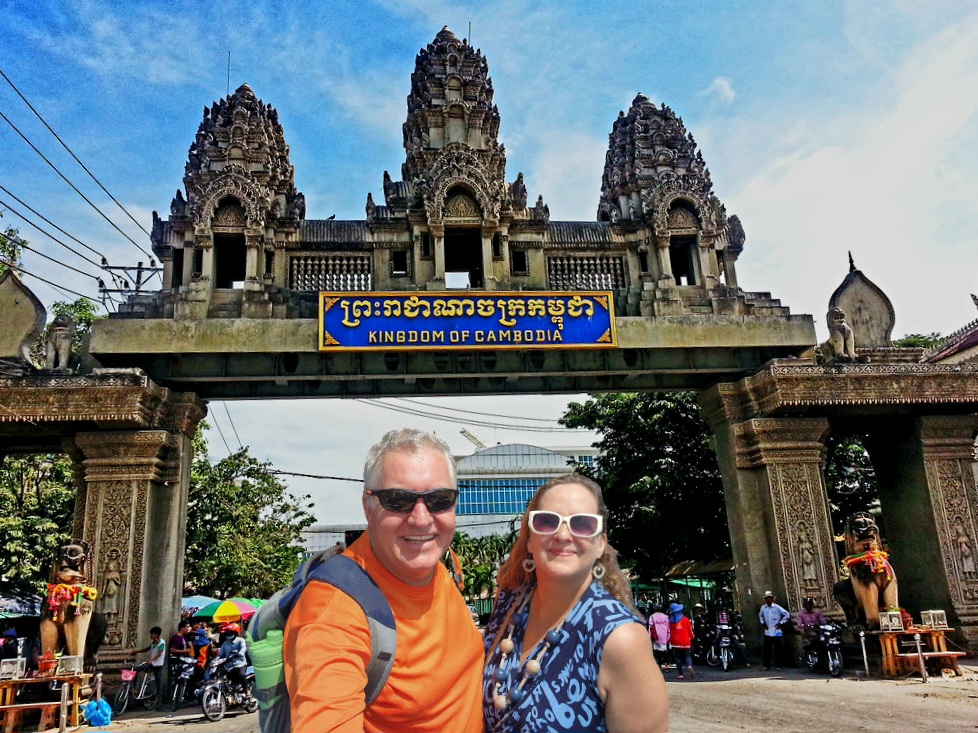Recent military tensions between Thailand and Cambodia have disrupted overland travel, especially for foreigners hoping to cross borders by land from Thailand into Cambodia.
On Sunday 8th June, Poipot major land border crossing opening hours were changed on the Thai side to only be from 8 am to 4 pm for all international gates, while bilateral gates are closed.
At the heart of the issue is a long-standing border dispute involving contested territory in the North of Cambodia near the Preah Vihear temple, a UNESCO World Heritage site.
There are previously agreed on demarcations but on May 28th, Cambodian and Thai soldiers briefly exchanged gunfire, resulting in the death of a Cambodian soldier.
Fortunately, bilateral talks are scheduled for June 14, aimed at de-escalation and restoring safe passage.

How This Affects Slow Travelers and Tourists
Border Closures & Reduced Hours: Some crossings between Thailand and Cambodia are entirely closed to tourists, while others operate only between 8 a.m. and 4 p.m.
This includes the main Poipot border crossing.
Tourist Restrictions: Only essential travel is allowed at certain land crossings, banning casual tourist movement.
Suspended Bus Services: Long-distance buses between Bangkok and key Cambodian cities like Phnom Penh and Siem Reap are suspended as of 9 June, affecting common backpacker and overland routes. These ran twice a day in each direction.
Both nations have reduced visa stays to 7 days for each other’s citizens.
Rapid Changes: The situation is fluid, and restrictions may change without much notice.

What can you do?
As full-time slow travelers, we always recommend staying flexible—especially now. We typically only book a day or two of accommodation after crossing a border, just in case of delays or sudden route changes. This kind of adaptable approach is even more important in moments like this.
We were fortunate to return from a full month in Cambodia just before these developments began (video coming soon!).
For those planning to explore the region soon, consider flying instead of relying on land crossings until things stabilize.
Stay informed through official government updates and travel advisories, and be prepared to pivot if needed. Safety and flexibility are key when traveling through areas facing geopolitical tensions.
